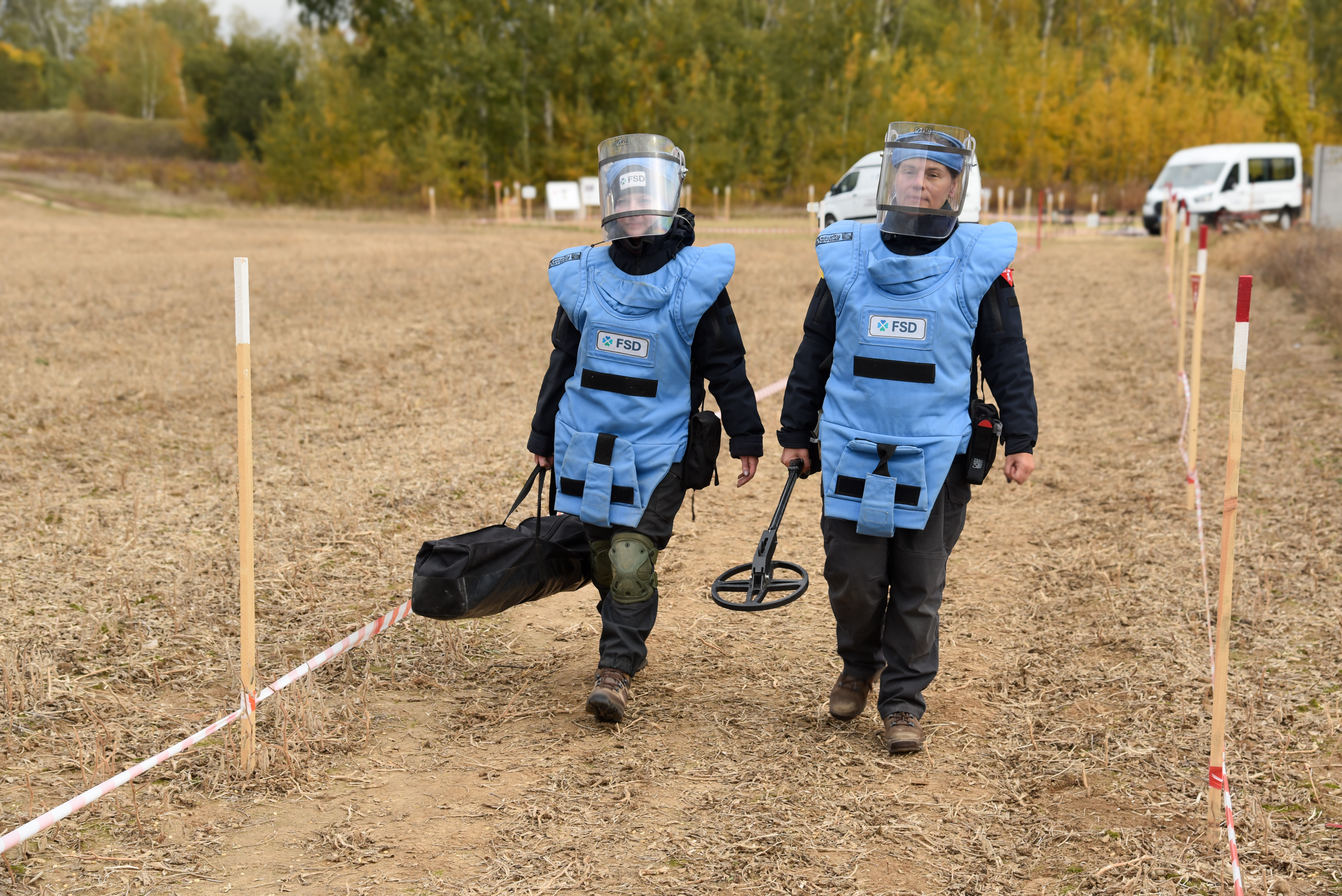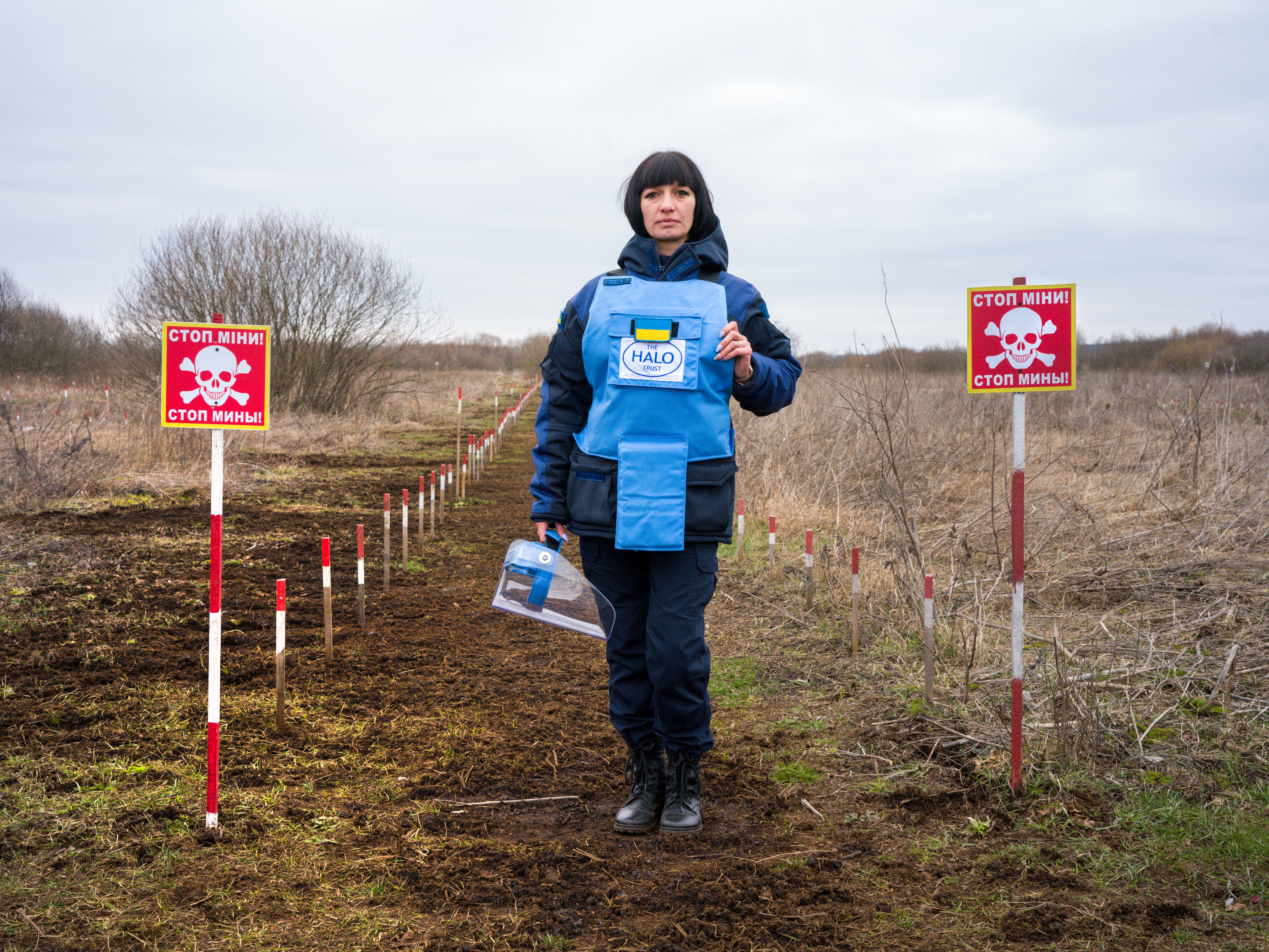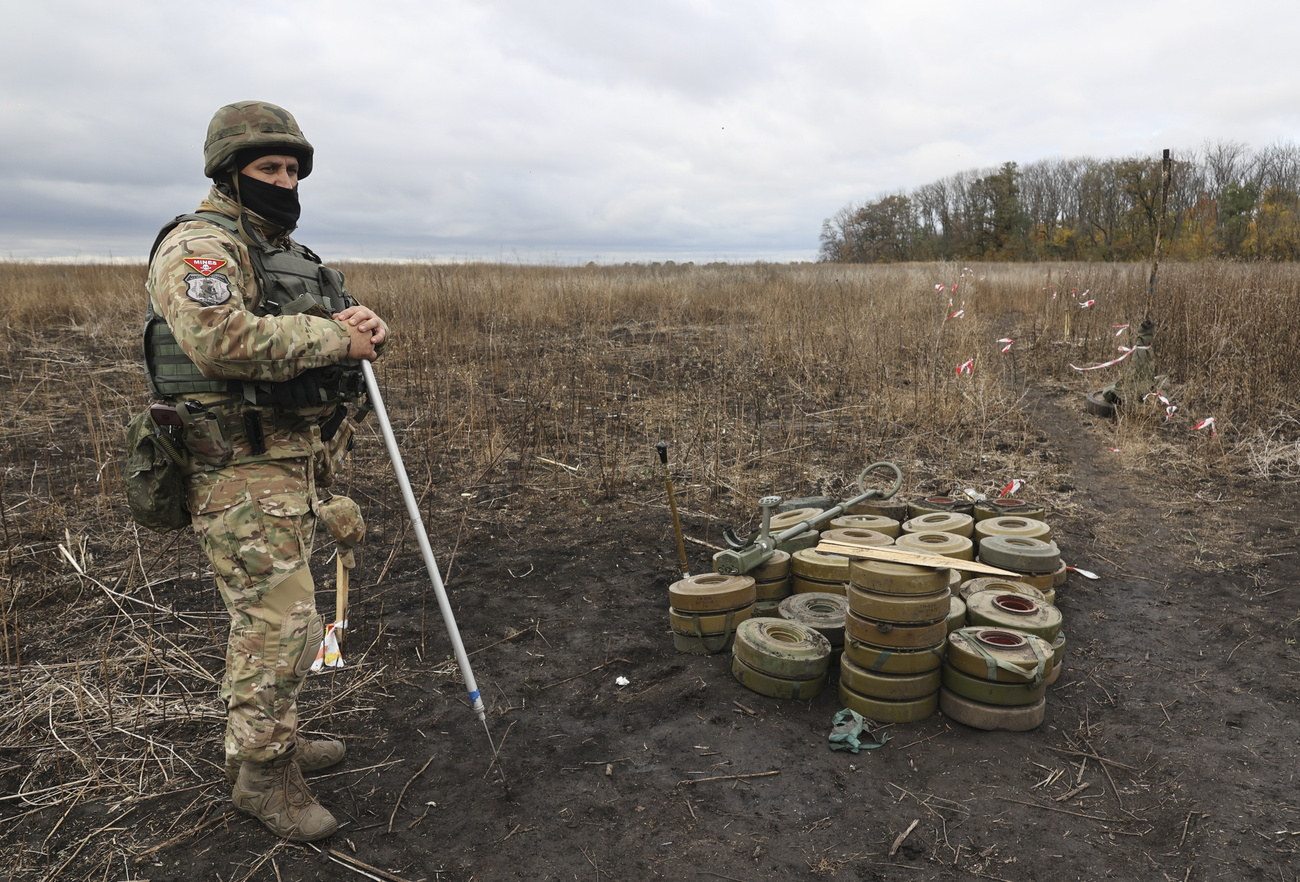
Key facts about Switzerland’s demining conference for Ukraine

Ukraine is one of the most heavily mined regions in the world. The upcoming humanitarian mine action conference in Lausanne aims to explore viable solutions to address the threat of mines, explosives and unexploded ordnance. Here is what you need to know.
Russia’s invasion has contaminated Ukraine with mines and other unexploded ordnance that will pose a threat for decades to come. Estimates suggest that around a quarter of Ukraine’s territory, which equals 150,000 square kilometres, is affected. This is an area four times the size of Switzerland.
Together with Ukraine, Switzerland is organising the Ukraine Mine Action Conference UMAC2024External link in Lausanne on October 17 and 18. Here is what you need to know:
What is the conference all about?
According to the Swiss foreign ministry, the aim of the conference is “to address the critical importance of mine clearance as a central component of rebuilding society and the economy”. In essence, it’s how humanitarian demining operations should be organised.

More
‘Ukraine can be a tipping point’ for ridding the world of landmines
Mines are cheap to produce and easy to lay, however, clearing them is a complex and laborious undertaking. The same is true for unexploded ordnance (UXO), such as grenades or bombs that failed to detonate. These remnants of war can remain deadly for decades after a conflict ends.
Known as Europe’s breadbasket, Ukraine is one of the world’s largest wheat exporters. Yet, like many other aspects of civil life in Ukraine, farming has been severely disrupted by contaminated soil. This not only poses a challenge for Ukraine’s economy but also impacts poorer countries which now face higher wheat prices due to the ongoing war.
Fifty states, international and regional organisations, humanitarian demining partners, the private sector and civil society will participate in the conference. “Good coordination of national activities and international support is crucial to ensure that this work can progress swiftly and effectively,” the Swiss foreign ministry writesExternal link.
The conference also aims to discuss funding and innovative approaches such as using drones for demining. As a result of the war, Ukraine has gained in-depth knowledge in drone technology.
What role does Switzerland play in humanitarian demining efforts?
Switzerland has made humanitarian demining in Ukraine a priority. In 2023, it allocated CHF100 million ($110 million) for this purpose. These funds support a wide range of activities, including aid projects for mine victims and small farmers who can no longer cultivate their fields.
Some of the funds are used for sending mine-clearing machines to Ukraine, demining activities, raising public awareness as well as training Ukrainian personnel and providing technical know-how. The Geneva International Centre for Humanitarian Demining (GICHD) and the FSD (Fondation suisse de déminage) are key partners in these efforts and have been actively engaged in eastern Ukraine since 2015.
An example of the work in Ukraine can be seen here in our archive video:
The Swiss conference is not the first focussed on humanitarian demining in Ukraine. An international donors’ conference was held in Zagreb, Croatia last year, while Switzerland has organised several technical workshops and thematic events on demining. In the summer of 2022, a few months after Russia’s invasion, Switzerland hosted the Ukraine Recovery Conference in Lugano which laid the foundations for reconstruction efforts. The Lugano conference underscored the importance of not waiting for the end of the war before starting recovery efforts.

More
Japan takes a leading role in removing Ukraine’s landmines
Is Switzerland allowed to assist demining during the war?
The Swiss neutrality law prohibits Switzerland from supporting military demining efforts which would facilitate Ukrainian forces passing through mined territory. This would constitute military support for a warring party.
Humanitarian demining, on the other hand, focuses on the civilian population which is protected under international law. In this context, the Ottawa Convention, an international treaty banning anti-personnel mines, has been in force since 1999 and was signed by both Switzerland and Ukraine.
However, powerful countries like China, India and the US have not signed the Ottawa Convention, nor has Russia which uses anti-personnel mines in Ukraine. According to the Landmine Monitor 2023External link, more than 600 people were killed by landmines in 2022 making Ukraine the country with the second highest landmine death toll globally after Syria.
More
What will happen after the Lausanne conference?
Japan has already announced plans to host a follow-up conference on humanitarian demining in Ukraine in the spring of 2025.
Although Japan is not a neutral country, its pacifist constitution limits its military powers to self-defence which makes military support for Ukraine a sensitive issue.
Japan has pledged $70 million (CHF60 million) for demining efforts, including machines, devices, training and technical expertise. In February this year, Japan pledged or already transferred $12 billion to Ukraine, making it one of Ukraine’s biggest supporters.”
Edited by Benjamin von Wyl, adapted from German by Billi Bierling/ds

More
Our weekly newsletter on geopolitics

In compliance with the JTI standards
More: SWI swissinfo.ch certified by the Journalism Trust Initiative




























You can find an overview of ongoing debates with our journalists here . Please join us!
If you want to start a conversation about a topic raised in this article or want to report factual errors, email us at english@swissinfo.ch.